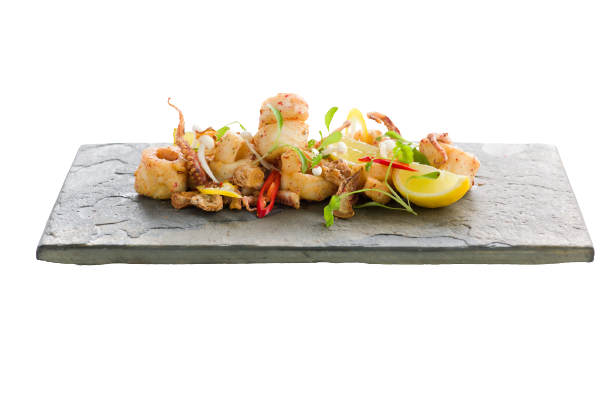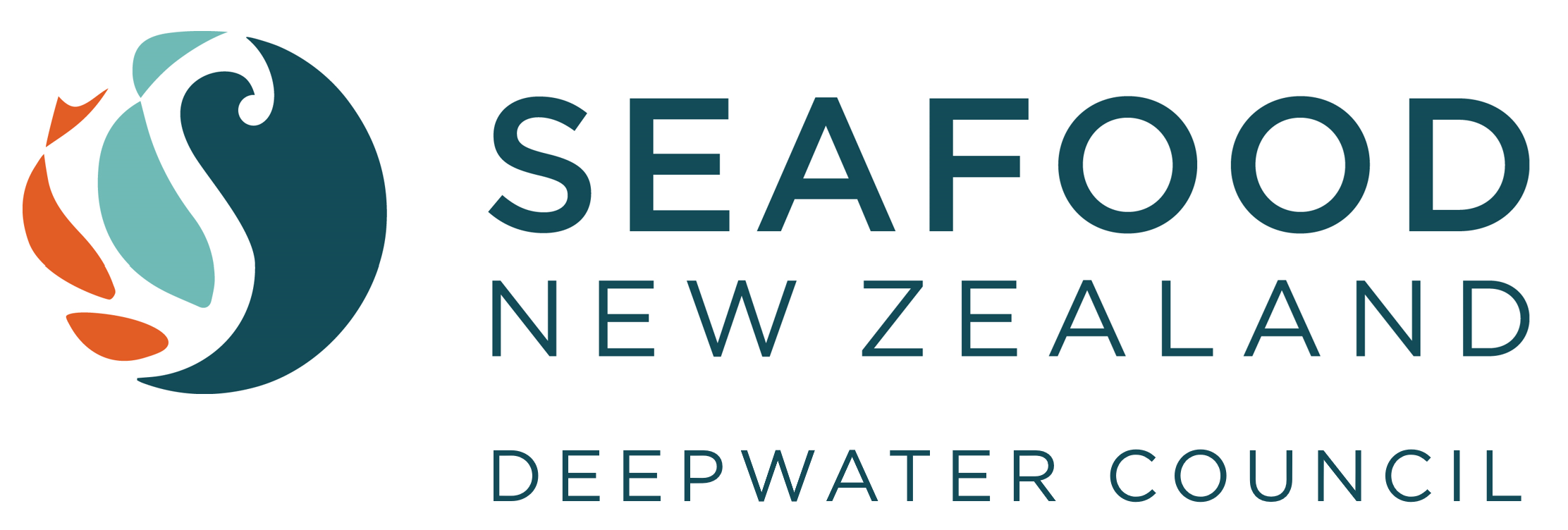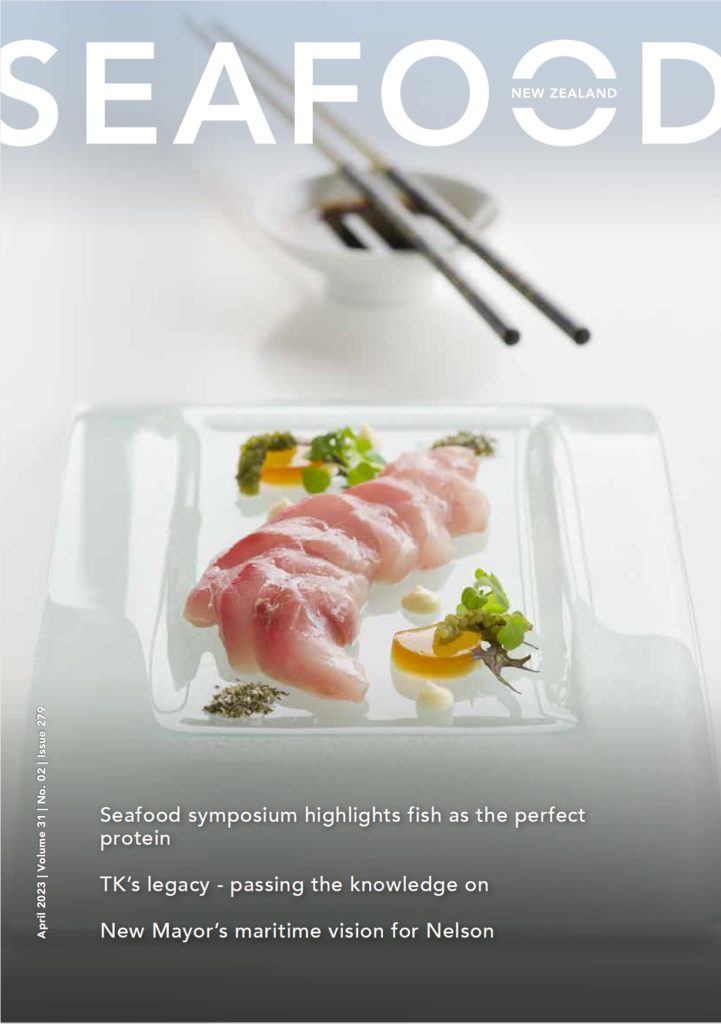2023 SYMPOSIUM ON SEAFOOD PRODUCTION
The science, economics, and environmental effects of seafood production in New Zealand.
Thursday 16 February 2023 | Wellington
The Proceedings Report is available now.
KEYNOTE SPEAKER

Professor Ray Hilborn
University of Washington
Seafood, a winner in low environmental food production impacts
Click here to view a video of his presentation at the symposium
... and here to view the PPT

Hugh Dixon
Business and Economic Research Ltd (BERL)
The economic and social contribution of seafood to New Zealand
Hugh was part of the BERL team in 2017 that determined the economic contribution of commercial fishing to the New Zealand economy. In 2022, he oversaw the development of an updated analysis of the economic contribution of commercial fishing to the New Zealand economy.
Click here to view a video of his presentation at the symposium
... and here to view the PPT

Dr Stewart Ledgard
AgResearch
Carbon footprint of fish from the New Zealand deepwater fishing fleet
Prof. Stewart Ledgard is a principal scientist with AgResearch (a Crown Research Institute) in New Zealand, with research expertise in agricultural systems and life cycle assessment (LCA). He has been actively involved in research on carbon footprinting and LCA indicators internationally. This includes being an expert technical reviewer on the European Product Environmental Footprinting method guidelines for dairy and red meat products and on the technical groups for the Livestock Environmental Assessment and Performance (LEAP) partnership for ruminants covering environmental impacts across supply chains. In New Zealand, he has led and been actively involved in LCA work on carbon footprinting of multiple livestock products. He has published over 140 scientific papers and 10 book chapters, with most of these over the past decade covering LCA.
Click here to view a video of his presentation at the symposium
... and here to view the PPT

Volker Kuntzsch
Cawthron Institute
No future without fishing
After spending his youth in Namibia and studying and working in South Africa (he has a Master of Science in Zoology from the University of Stellenbosch), Volker started working for Unilever in Germany and the UK in the 1990s. During this time, he introduced the Marine Stewardship Council certification to the NZ deepwater industry, laying the foundation for his passion for NZ.
Since then, Kuntzsch has had a distinguished 30-year international career with senior executive roles in Tokyo, Namibia, Germany and the US. He was the president of Nippon Suisan (USA), and president and CEO of King & Prince Seafood Corp (USA), before joining Sanford in New Zealand as CEO in 2013. In this role his experience developing awareness of seafood sustainability further strengthened Sanford’s commitment to sustainable practices.
Currently, Volker is CEO of New Zealand's largest independent science organisation, Cawthron Institute ‒ a key player in building sustainable primary industry in New Zealand.

Dion Tuuta
Te Atiawa Trust
The evolving nature of Māori fisheries and challenges for the future
Dion Tuuta (Ngati Mutunga, Ngati Tama, Te Atiawa and Taranaki) is the Chief Executive Officer of Te Kotahitanga o Te Atiawa Trust, the Post-Settlement Governance Entity for Te Atiawa Iwi.
Prior to taking on this role Dion was the Chief Executive Officer for Te Ohu Kaimoana – the Maori Fisheries Trust where he was responsible for advocating for Maori rights in fisheries. He is a previous Chairman of Port Nicholson Fisheries Limited Partnership and previous Director of Seafood NZ.
Dion’s career has included roles as a Historian, Policy Manager, Communications Manager, and Treaty Negotiator for his Iwi Ngati Mutunga.
He has a significant experience in Crown-Maori relation and was a member of the advisory panel to the Office of the Prime Minister’s Chief Science Advisor on the Future of Commercial Fishing in Aotearoa report released in 2021.
Dion lives in Taranaki.
Click here to view a video of his presentation at the symposium

Aaron Irving
Seafood New Zealand, Deepwater Council
Ecosystem Approach to Fisheries Management
Aaron is formally the CEO of Deepwater Group, is now the General Manager of the SNZ Deepwater Council. Prior to joining Deepwater Group, Aaron was the Executive Officer of the Pearl Producers Association in Western Australia, where he completed the National Seafood Industry Leadership Program (NSILP) in 2015 and the Australian Rural Leadership Program (ARLP) in 2019. Aaron was also the Executive Chair of the National Aquaculture Council from 2016-2019. Aaron acknowledges the entanglement of interests that surround the use of natural resources and is interested in sustainable and responsible resource use. Aaron has experience in fisheries and aquatic environmental policy, and is admitted to High Court of New Zealand as Barrister and Solicitor.
Click here to view a video of his presentation at the symposium
... and here to see the PPT

Tom McClurg
Toroa Strategy
Facilitator
Tom has over thirty five years’ experience within various primary sector natural resource management and policy roles in New Zealand during a career in which he has held senior executive positions with The Ministry of Fisheries, Te Ohu Kai Moana, Aotearoa Fisheries Limited, the corporate finance practice of Ernst & Young and Landcorp Farming Limited. Since 2009, he has provided consultancy and directorship services through his company, Toroa Strategy Limited including international fisheries consultancy notably several projects for both the World Bank and the Parties to the Nauru Agreement. Tom is currently the Chair of Fishserve and his recent career is defined by a growing connection to iwi businesses and the role of lead negotiator for Ngāti Mutunga o Wharekauri in their Treaty Settlement negotiations.
Highlights Video
Click to view highlights of the symposium
Panel Discussion
Click to view the Panel Discussion
References
Halpern, B.S., Frazier, M., Afflerbach, J. et al., (2019) Recent pace of change in human impact on the world’s ocean. Sci Rep 9, 11609 (https://doi.org/10.1038/s41598-019-47201-9)
NSW Department of Primary Industries (2016) NSW Marine Estate Threat and Risk Assessment – background environmental information (https://www.marine.nsw.gov.au/__data/assets/pdf_file/0006/672198/NSW-Marine- Estate-Threat-and-Risk-Assessment-background-environmental-information-TARA- report.PDF)
Department of Conservation (2020) Biodiversity in Aotearoa, an overview of state, trends and pressures 2020 (https://www.doc.govt.nz/globalassets/documents/ conservation/biodiversity/anzbs-2020-biodiversity-report.pdf)
Sala, E., Mayorga, J., Bradley, D. et al., (2021) Protecting the global ocean for biodiversity, food and climate. Nature 592, 397–402 (https://doi.org/10.1038/s41586-021-03371-z)
Hilborn, R., & M.J. Kaiser (2022) A path forward for analysing the impacts of marine protected areas. Nature 607, pages E1–E2 (arising from: E. Sala et al. Nature 592, 397–402) (https://doi.org/10.1038/s41586-022-04775-1)
Hiddink, J.G., Van de Velde, S.J., McConnaughey, R.A. et al. Quantifying the carbon benefits of ending bottom trawling. (response to E. Sala et al. Nature 592, 397–402) Nature 617, E1–E2 (2023). (https://doi.org/10.1038/s41586-023-06014-7)
Pitcher et al., (2021) Trawl impacts on the relative status of biotic communities of seabed sedimentary habitats in 24 regions worldwide. PNAS Vol. 119 No. 2 (https://doi.org/10.1073/pnas.2109449119)
Bianchi, M., Hallström, E., Parker, R.W.R. et al., (2022) Assessing seafood nutritional diversity together with climate impacts informs more comprehensive dietary advice. Commun Earth Environ 3, 188. (https://doi.org/10.1038/s43247-022-00516-4)
Floerl, O., Atalah, J., Bugnot, A.B. et al., (2021) A global model to forecast coastal hardening and mitigate associated socioecological risks. Nature Sustainability 4, 1060–1067 (https://doi.org/10.1038/s41893-021-00780-w)


